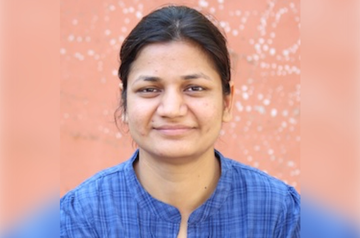A Changing India As Seen By A Nonprofit Professional Over Five Years
On a field visit to Yavatmal, Maharashtra we met Indu Bai – an enterprising middle aged woman who, over the course of 4 microloans, turned her life around. Starting off as a door-to-door bangle seller, she had since then helped her husband start a small ‘kirana’ store, renovated her house with her business income and become a role model for the women in her neighbourhood.
At Rang De we are trying to make credit affordable and timely for the urban and rural poor in our country. We work with partner organisations located in 15 states to identify those individuals who continue to rely on usurious credit sources.
As the Chief Impact Officer at Rang De, my work takes me to urban slums, to remote border villages, to small towns waiting to turn into cities. And I get to see an India that is rapidly changing - household incomes are increasing, aspirations are growing, and traditional livelihoods are being abandoned in favour of new ones.
In different ways we are all a part of this rapid change. As consumers we end up dictating what our weavers weave, what crops our farmers grow, and to what extent our mainstream movies are misogynistic or feminist. As producers and marketers of goods and services, we influence behaviour of others through persuasion, incentives, and psychological manipulation, sometimes even through diktats.
In 2012, I made the life changing decision to quit a cushy, enjoyable job in a media company and start afresh in the development sector. Naïve that I was, I thought my years of corporate experience would in subtle yet substantial ways change the world for the better. What I discovered instead was that I would need to unlearn quite a few things before I could hope to be productive again.
From 2012 to 2013, I worked with an NGO called Chirag located in a small village called Simayal in Nainital. After spending four and a half years in Bombay, the chirping of crickets at night and the whistling of the wind through pine forests was exciting and unnerving at the same time. It was only after the initial disbelief at my own daring and good luck wore away, that I started contributing to the functioning of Chirag.
From a well-defined role at a corporate job, I moved to a half-baked role that meant doing odd jobs and attending to ad-hoc support requests. Most small NGOs are resource starved; and everyone is expected to pitch in wherever they can. It can be frustrating at times, but it also provides ample opportunities for learning and growth.
In those 20 months, I got a crash course in developmental studies - I saw first hand how gender intersects with caste and class to perpetuate poverty and injustice. I understood that perhaps the most difficult thing to gain (and consequently the easiest thing to lose) is the trust of the community.
A common misconception a lot of people (myself included) carry about professionals in the development sector is that they are all talk and any action. They are criminally inefficient and woefully unaccountable. Having spent a few years in this sector now, I can honestly say that some of the most interesting and passionate people I have met are the ones who are using their intelligence and skills to solve social problems. Not to undermine the work that scientists and engineers do but once you throw in humans and nature into the mix, problems (and solutions) become inherently more knotty.
It definitely takes a rare mind and an accomplished team to land a man on the moon. It takes an equally rare mind (and a fine team) to correct a historical wrong, like the work that Magsaysay Award winner Bezwada Wilson is doing to rehabilitate manual scavengers through Safai Karamchari Andolan.
This March, I complete five years in the not for profit sector. I have officially now spent more time in this space than I did in the corporate sector. If I have learnt anything in the last five years, it is patience - things here move more slowly – maybe because the decisions that we take do have a deeper effect on the lives of the people. We, with our 100Mbps Internet speed, sometimes struggle to comprehend the life of a woman in rural Bihar who spends half a day waiting to withdraw her own money from a grameen bank. This lack of insight and understanding often prompts us urban folks to design solutions or suggest answers that are sadly unfit for the population that they hope to serve.
I began this write up by sharing Indu Bai’s story. There are thousands of such stories of change waiting to unfold and not all of them will happen overnight. I do believe that if our finest minds choose to dedicate their skills and time to only creating the next unicorn or the next big hedge fund, the world will be that much poorer.
The decision to switch careers had seemed daunting at first but the move from being an armchair critic to doing something to bring about a small change has been very satisfying. So if you can, get involved – start with what you have, what you know and be the change you want to see.













